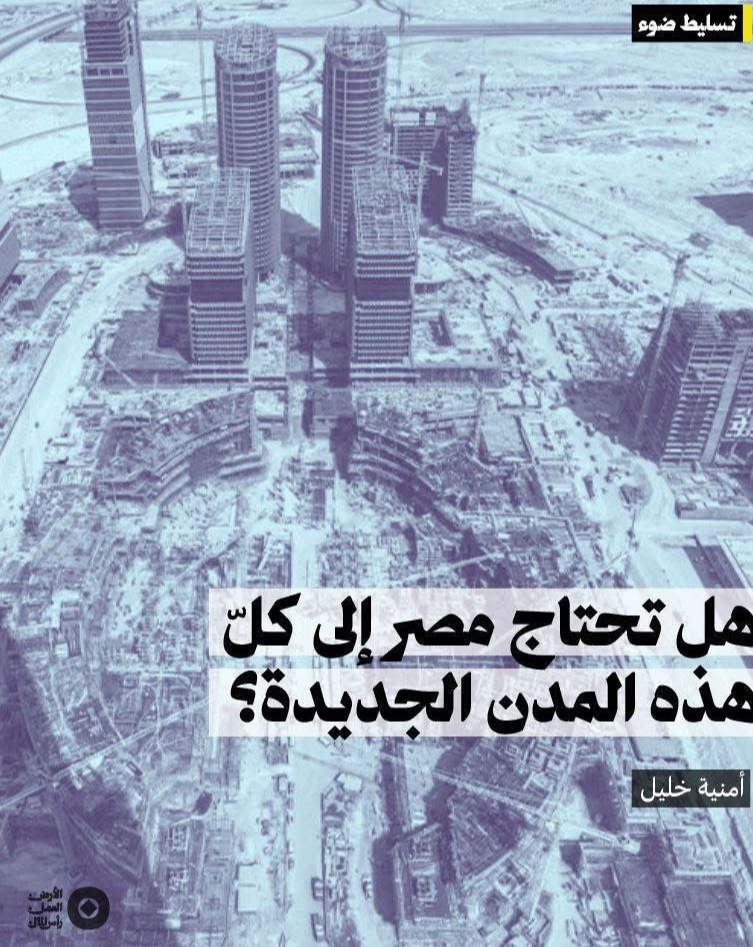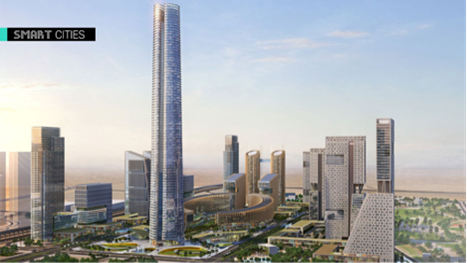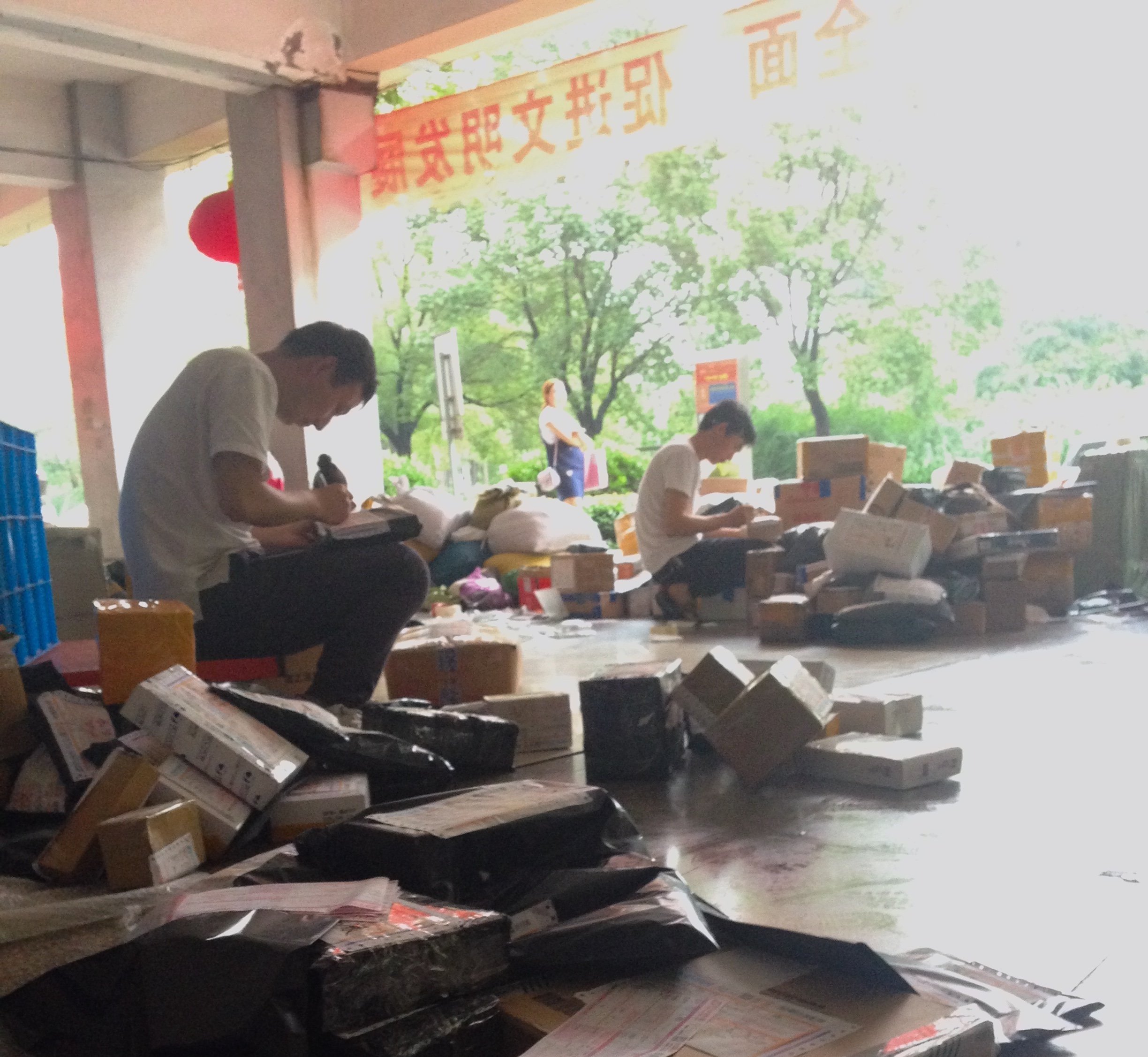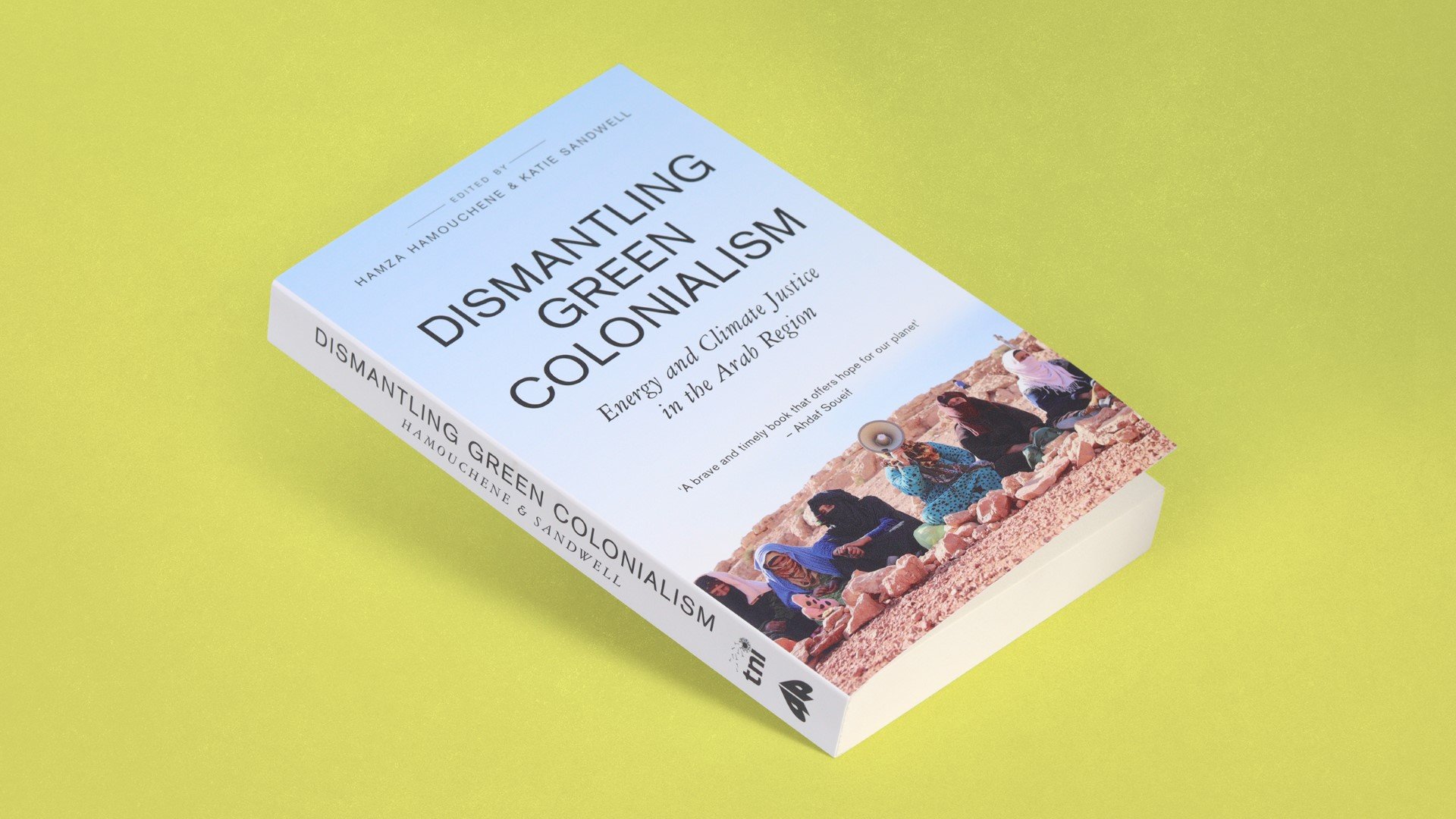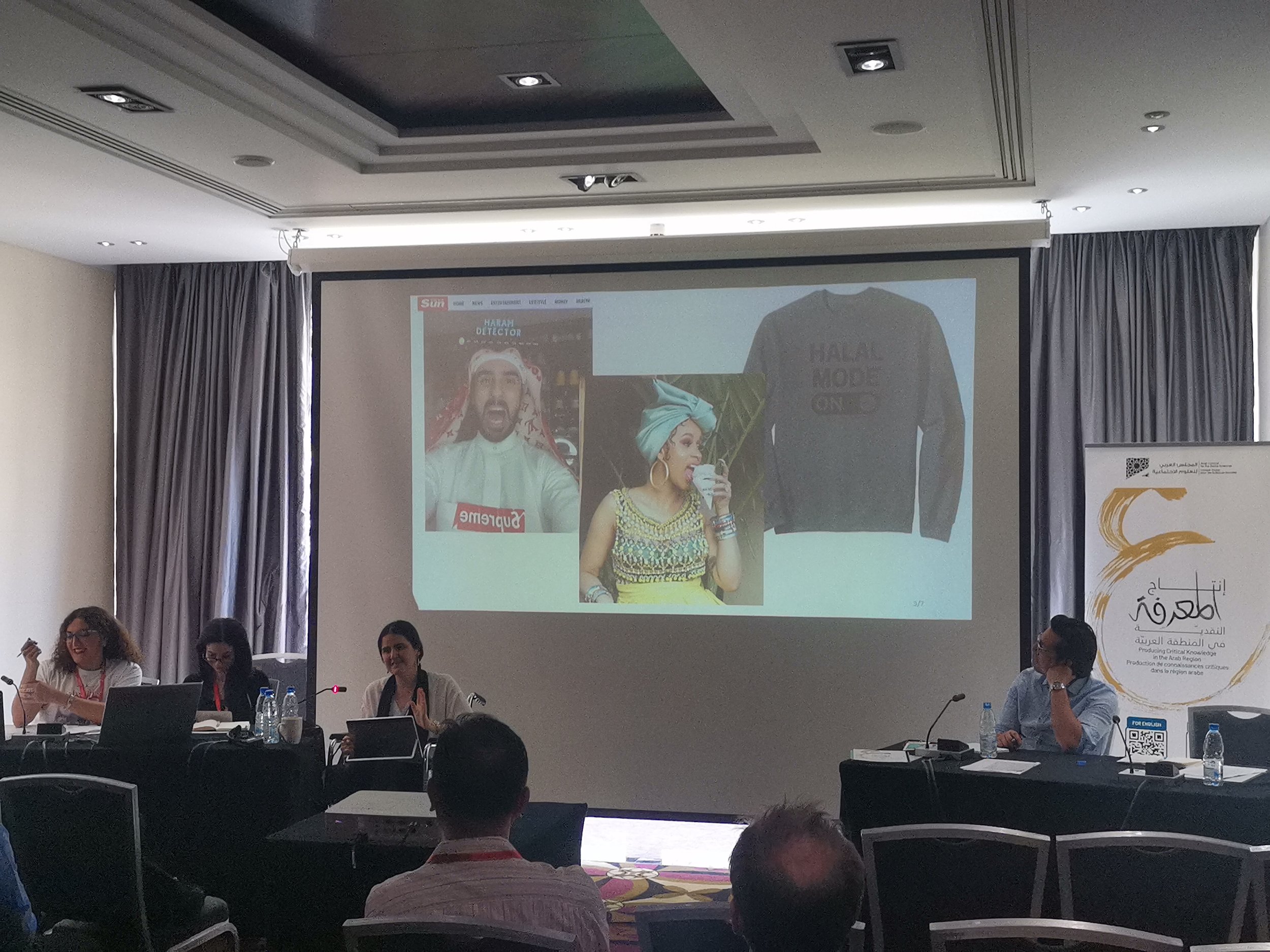Project Publications
This page features publications from the project, including long form blog posts, and downloadable academic publications and working papers.
Author
- Abdelhamid Mecheri
- Adam Hanieh
- Arang Keshavarzian
- Diana Ishaqat
- Faisal Hamadah
- Francesco Amoruso
- Hala Abi Saleh
- Javier Guirado Alonso
- Jie Wang
- Laleh Khalili
- Maha Abdelrahman
- Muntaha Abed
- Nassiba Tamma
- Noura Wahby and Sijia Zhao
- Oliver Hayakawa
- Omnia Khalil
- Oussama Dhiab
- Safa Joudeh
- Samir Ramzy
- Sarah Wood
- Sardar Aziz
- Xinyu Lin
- Ying Huang
- Zachary Lockman
- Zaynab El Bernoussi
The Mapping Connections Project is pleased to announce the recent publication of an article by Omnia Khalil in the magazine Alsifr. Omnia is an ECR on the project and a Lecturer at the Department of Anthropology, and Interdisciplinary Programs, CCNY; Interim Director, International and Global Studies Program, CCNY and Affiliated Professor of the Earth & Environmental Science Doctoral Program, CUNY Graduate Center
The Mapping Connections Project is pleased to announce the recent publication of an article by Dr. Oliver Hayakawa in the journal Mediterranean Politics. Oliver is an ECR on the project and a Lecturer in International Relations on the joint degree programme 'International Governance and Public Policy' delivered in partnership between the University of Keele, UK, and Beijing Foreign Studies University (BFSU), China.
This paper examines China's overseas industrial zone in Egypt from a local perspective, assessing whether Belt and Road (BRI)-linked zones have effectively responded to local needs and development objectives. China’s industrial parks under the Belt and Road Initiative (BRI) have facilitated Chinese investment abroad while aiming to support host countries' industrialisation, but their effectiveness varies.
Mapping Connections Early Career Researcher Jie Wang contributed an essay titled “A Chinese Conversation Nādi in Cairo: The Grassroots Popularity of Mandarin Chinese in the Middle East” to the Focus section of Global China Pulse
This working paper explores the new frontiers of green capitalism in the Arabian Peninsula by taking Ibri II as a case study. Ibri II is a solar plant inaugurated in Oman in 2022 with seed funding provided by China. Its establishment has facilitated the development of a land corridor that links Saudi Arabia to Oman through a new highway, connecting Red Sea and Indian Ocean trade routes and reshaping the economic geography of the Arabian Peninsula.
Our concluding blog from the Mapping Connections Institute is written by Diana Ishaqat, a development practitioner from Jordan, who discusses the nature and perception of Chinese aid to the Arab world
Two new pieces published by Zaynab El Bernoussi
In this blog from the Mapping Connections Institute, Javier Guirado Alonso examines China's involvement in Oman's Ibri II solar plant, and the implications for Saudi-Oman relations
In this blog from the Mapping Connections Institute, Noura Wahby and Sijia Zhao explore the significant role of entrepreneurs from the Chinese diaspora in the granite and marble industry of Shaq AlThoban, or 'Snake Valley', Egypt
Halal is principally a standard of what is permissible for consumption and use in Islam. It presents both a growth opportunity for different social actors (firms, government institutions, consumers) and is also becoming a trend in its own right. This working paper explores the general expansion of global halal markets, focusing particularly on halal food. It provides an overview of the crucial role of actors engaged in halal certification and quality standardization, and analyzes the possibility of China emerging as a major player in the global halal industry, particularly in the MENA region.
In this new blog from our Mapping Connections Institute, Xinyu Lin discusses the 'Hundred Schools Project' in the UAE, a program to incorporate Mandarin into the UAE's national educational curriculum, from public kindergarten to state high school
In this new piece, Mapping Connections Early Career Researcher Jie Wang explores the history and meaning of a unique Arabic-language magazine, Sawt Al-Arab, which was published between 2013 and 2017 by a group of Arab diaspora residents living in China
In our second Arabic-language blog from the Mapping Connections Institute, Oussama Dhiab explores the scale of organised Chinese tours to Tunisia and some of the challenges that these present
In this Arabic language blog from the Mapping Connections Institute, Nassiba Tamma from the University of Boumerdes in Algeria explores China's infrastructure expansion in the Maghreb, with a particular focus on Algeria.
In this next blog from our Mapping Connections Institute, Muntaha Abed reflects on the importance of studying the shared experiences of student movements across West and East Asia
In this further instalment of blogs from our Mapping Connections Institute, Ying Huang explores the significance of Sino-Arab film weeks in building closer relationships at the popular level between China and the Arab world during the 1950s and 1960s
In this fourth blog from our Mapping Connections Institute, Hala Abi Saleh discusses different ways of thinking about how Saudi Arabia and the UAE perceive their fast developing relationships with China
This next instalment of blog pieces developed by participants at the Mapping Connections Institute presents an analysis of China's memory narratives and their role in supporting Sino-Arab diplomatic and economic initiatives. It is written by Abdelhamid Mecheri, a Lecturer at Boumerdes University (UMBB), Algeria
In our second blog from the Beirut Mapping Connections Institute, we present an analysis by Samir Ramzy on the impact that competition around Artificial Intelligence might have on the balance of power in the region.
Over the coming weeks, we will be presenting blogs written by participants at the Mapping Connections Institute, held in Beirut between 27-30 May 2024 as part of the Inter-Asia Partnership's (IAP) 'Inter-Asia Week'. The first of these explores the new regional dynamics of the Middle East in light of the war in Gaza and heightening US-China rivalries.
The Mapping Connections project recently concluded an Institute on Mapping Arab Region-China Connections’ convened between 27th – 30th May as part of the Inter-Asia Partnership’s (IAP) ‘Inter-Asia Week’.
Following the inception of the Chinese Belt and Road Initiative in 2013, in 2017, the Egyptian government entered into a bilateral collaboration with China. This Sino-Egyptian collaboration entails several infrastructure projects in Egypt, including light railways, and the construction of skyscrapers as part of new mega-projects. These economic changes in Egypt came about due to the political decisions made by the new militarized regime, four years after the 2013 coup. These political shifts entailed the deepening of the state’s role in the Egyptian political economy. In this paper, I explain the urban development projects supported by the Sino-Egyptian bilateral collaboration. I examine the nature of the agreement and how it contributes to the Egyptian economy: do urban development projects contribute to state capitalism in Egypt, or not?
This working paper sidelines the use of official trade data in a study of China-Palestine commerce for an ethnography informed methodology that offers an alternative perspective on globalised Palestinian economic exchange. This approach is anchored in an exploration of the nuanced motivations, fears, ambitions, and associated practices of lesser acknowledged actors who mediate the Palestinian trade economy.
This workshop was held as part of a follow up to the 'Mapping Connections: China and Contemporary Development in the Middle East' Beirut workshop of 14-15th January 2023. It was organised in collaboration with the Centre for West Asia and North Africa Studies at the Institute of International and Area Studies, Tsinghua University (IIAS) and the Arab Council of Social Sciences, (ACSS) Beirut. The event was hosted by our colleagues at IIAS in their newly completed offices, and for several participants this was a first visit to China.
On 30 January 2024, Professor Adam Hanieh delivered a lecture titled “The ‘East-East’ Hydrocarbon Circuit: Rethinking Middle East Oil and the World Market” at the Department of Politics and International Studies (POLIS), University of Cambridge. Around forty students, academics, and visiting scholars from different faculties attended the lecture, which was followed by a reception.
On 26 October 2023, Professor Adam Hanieh delivered an inaugural lecture to a newly formed student association at Tsinghua University, Beijing, China – the Tsinghua University Student Association of China-MENA Friendship (THU-MENA).
The Western international relations concept “soft power” has deeply penetrated official, academic, and public vocabulary of China’s presence in the MENA region in this century. The Confucius Institute (CI) has become the Leitmotif of scholarship on China’s soft power in cultural domain. However, the region has also witnessed the emergence of a range of non-CI language or cultural-cum-language training spaces.
Recent research has explored the features of an emergent international development regime that embraces infrastructure-led development as a means of enhancing connectivity and global market integration. While numerous influential international institutions have been at the forefront of the global infrastructure drive, emerging economic actors such as China are becoming increasingly active as providers of infrastructure development assistance.
Building on his research as part of the 'Mapping Connections' project, Adam Hanieh has a new chapter in the upcoming volume, Dismantling Green Colonialism: Energy and Climate Justice in the Arab Region (Pluto Books/TNI, 2023), co-authored by Hamza Hamouchene and Katie Sandwell.
Early career researchers from the Mapping Connections project presented their work at a panel convened as part of the Sixth Conference of the Arab Council for Social Sciences (ACSS) held in Beirut, Lebanon, 25 to 28 May 2023. ACSS is a partner of the Mapping Connections project, and their biannual conference brought together close to 400 researchers from the Arab region and the world, as well as the ACSS Board of Trustees, representatives of donor organizations, university presidents, deans, and faculty members in prominent universities around the region.

